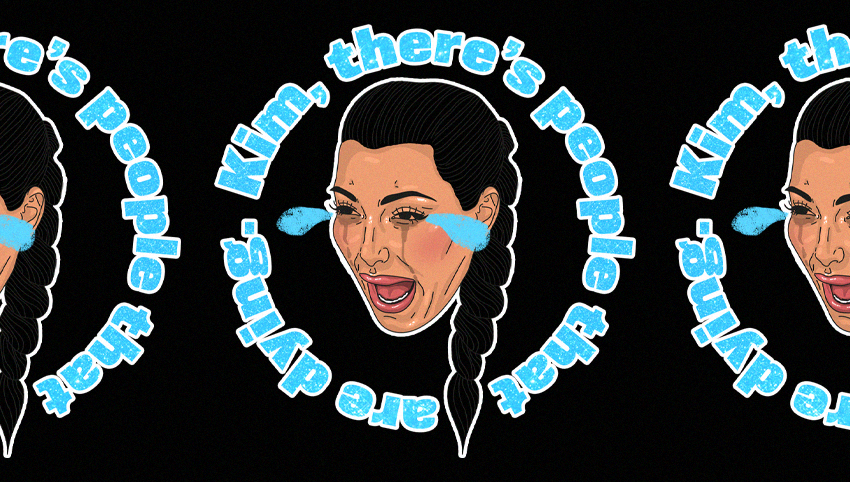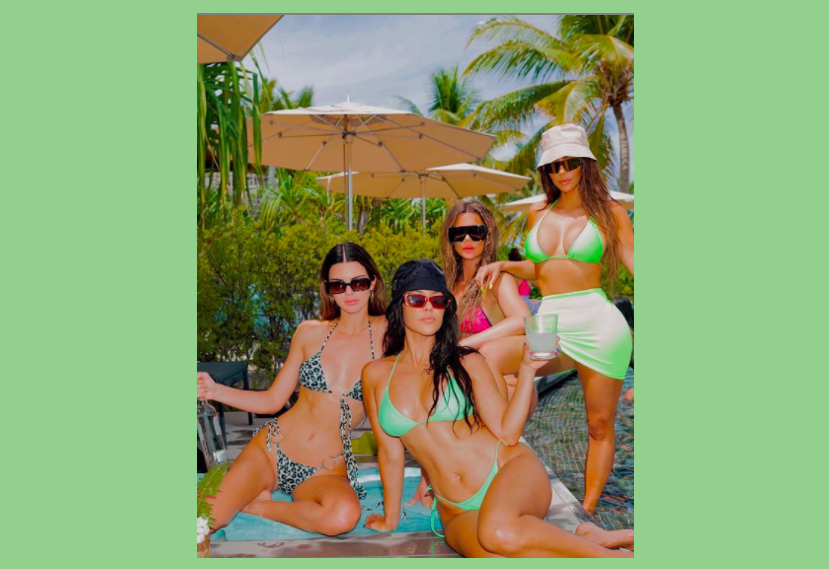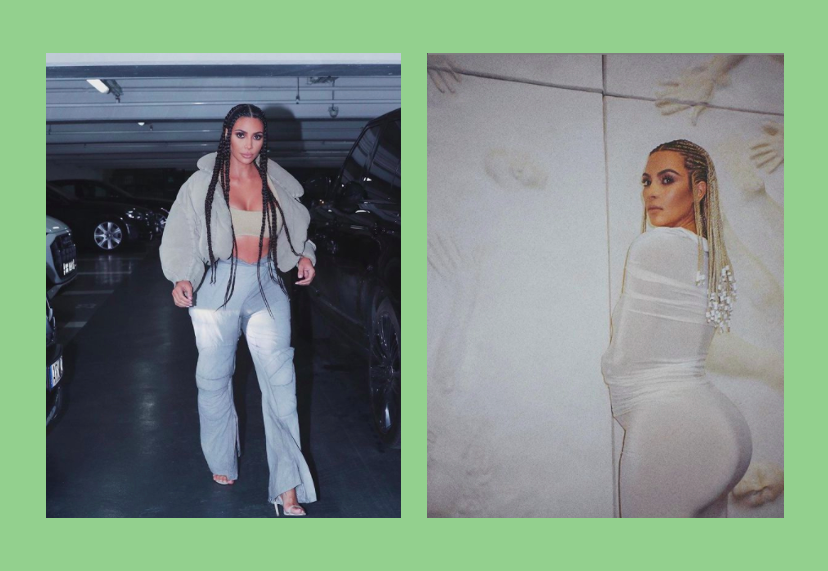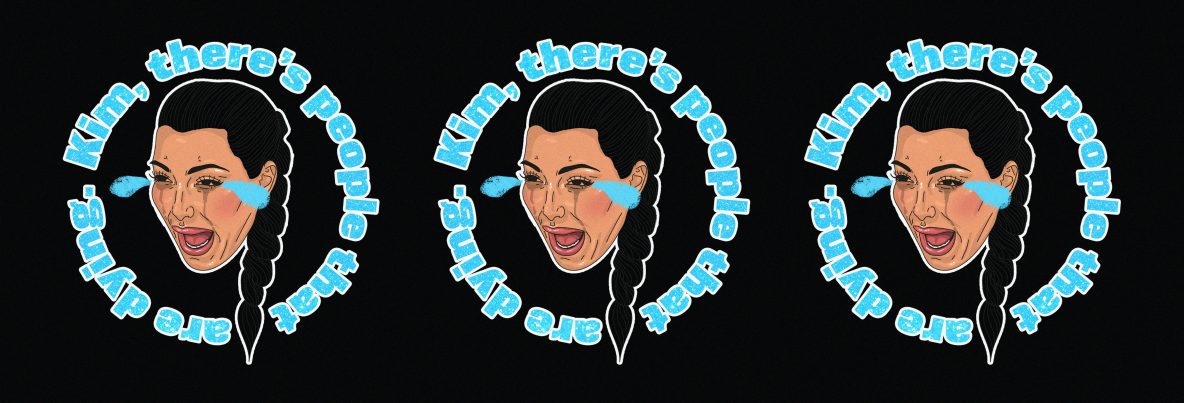(No Longer) Keeping up with the Kardashians
What has the reality TV show done to pop culture and body image?
By Milla Alexander / 20 November 2020

Illustration by Jade Pughe
Looking back at the first season trailer of Keeping Up With The Kardashians, you’d barely recognise the family that brought us 19 seasons of drama, fame, and inappropriate sibling interaction.
As the series approaches its final episodes, it’s important to think about what the show ignited in its obsessive fans, venomous critics, and all of those in between. While it wasn’t the first reality TV show to hit our screens (here’s looking at you ‘The Simple Life’), it was certainly the biggest. While I admit I’ve been known to watch episodes back-to-back and refer to it as my guilty pleasure, the best word I can use to describe Keeping Up With The Kardashians is decadent: characterized by or reflecting a state of moral or cultural decline.
Throughout the years we’ve seen a transformation of all of the family members. From their physical appearances to the way they’ve been perceived in the media and public, to the people they’ve chosen to marry and have kids with.But whatever you think of the Kardashians, the fact is - reality TV has been a dominant feature in our lives for the last 20 years and it’s impacting how we see ourselves.
In my late teens and early twenties, I was very skinny. As I grew older my body changed - totally normal FYI - and the weight held on to parts of my body I never thought they would. Now at 32, having been on longterm medication for my mental health for over 12 months, and living through 2020 hell year, I’ve put on weight that has left me feeling unattractive and undesirable. I look at Kendall Jenner and think back to my teenage body, often wishing I could go back to that size and “shape”. These types of feelings are common for reality TV watchers. Academic studies show that people tend to feel that they don’t measure up to reality stars which results in them feeling shame and distress in their own bodies. And in turn, this impacts their mental health.

Image via @kimkardashian
Shows like Love Island exacerbate these types of feelings when you see the people selected all conform to stereotypical ideals of what women and men should look like.
When shows like this claim to be ‘reality TV’, but select a large number of professional models, it’s easy for people, especially younger audiences, to assume that what they look like is the norm. So then you have to look at people like Kylie Jenner. We’ve seen the biggest transformation in Kylie over the years. She’s had work done all over, from her lips to her hips, all in order to fit the aesthetic of her sisters. Is it any wonder then, that viewers would look in the mirror and see all the things ‘wrong’ with their own image?
You’ve also gotta consider other factors when watching shows too. For example Love Island: there is a race disparity every season. And what commonly happens is the Black contestants don’t tend to go very far. The lack of diversity in programmes like these is a surefire way of saying that the only people who are desirable all look the same. What a lot of these shows are stating then, inadvertently or not, is that the way you look is more important than your personality. Let’s talk about The Bachelor. A show that is all about finding love, flouts women with a specific aesthetic. Yes, they spend time with the chosen bachelor but often you see the women comparing themselves to the other women because of the way they look.
Made In Chelsea has had exactly two Black people star in the show since its first airing in 2011. Are there no non-white, well-to-do people in Chelsea to choose from? Or are their potential storylines of less interest? Shows like these make me realise that the reality for many of these reality stars are completely lacking in diversity. Male, pale, and stale.
The curious paradox here is, despite the lack of real diversity, the levels of blackfishing that appear amongst reality stars are high. From excessive fake tan, to appropriated style and braids. Kim and Kylie being the poster girls for the black aesthetic, without actually being black, sends the incredibly damaging message to viewers in the words of Wanna Thompson, that “Be it fashion, beauty or music. Black is cool, unless you’re actually black.”

Image via @kimkardashian
The people creating these shows are doing so from the male gaze.
Do reality TV moguls have a responsibility to society to make a concerted effort to feature a more diverse cast? Or will black characters be stereotyped? Will bigger bodies be ridiculed? Will marginalised groups have to put in the hard work to get to a place of acceptance?
I’m not sure. But I know that it was very rare that I’d finish an episode of KUWTK without feeling a deep sense of insecurity. So I had to stop watching it. I forced myself to stop following the Kardashians on social media. I still get caught up now and then. Just the other day I scrolled through Kendall’s entire Instagram feed, obsessing over her waist. Every bikini picture took me back to a specific photo of myself at 19 and I sat for hours afterwards trying to figure out how I was going to become that girl again. I felt like shit and avoided mirrors for the rest of the day.
I know all bodies are beautiful. And I take issue with the fact that I can be so repulsed by my own body daily but conversely believe I would never look at another and judge theirs. This is what reality TV does more so than anything else. It not only makes us insecure and unhappy within our own skin. It makes us believe that anyone who doesn’t look like these people on our screens is also unworthy.
Art by
Words by
Share this article

